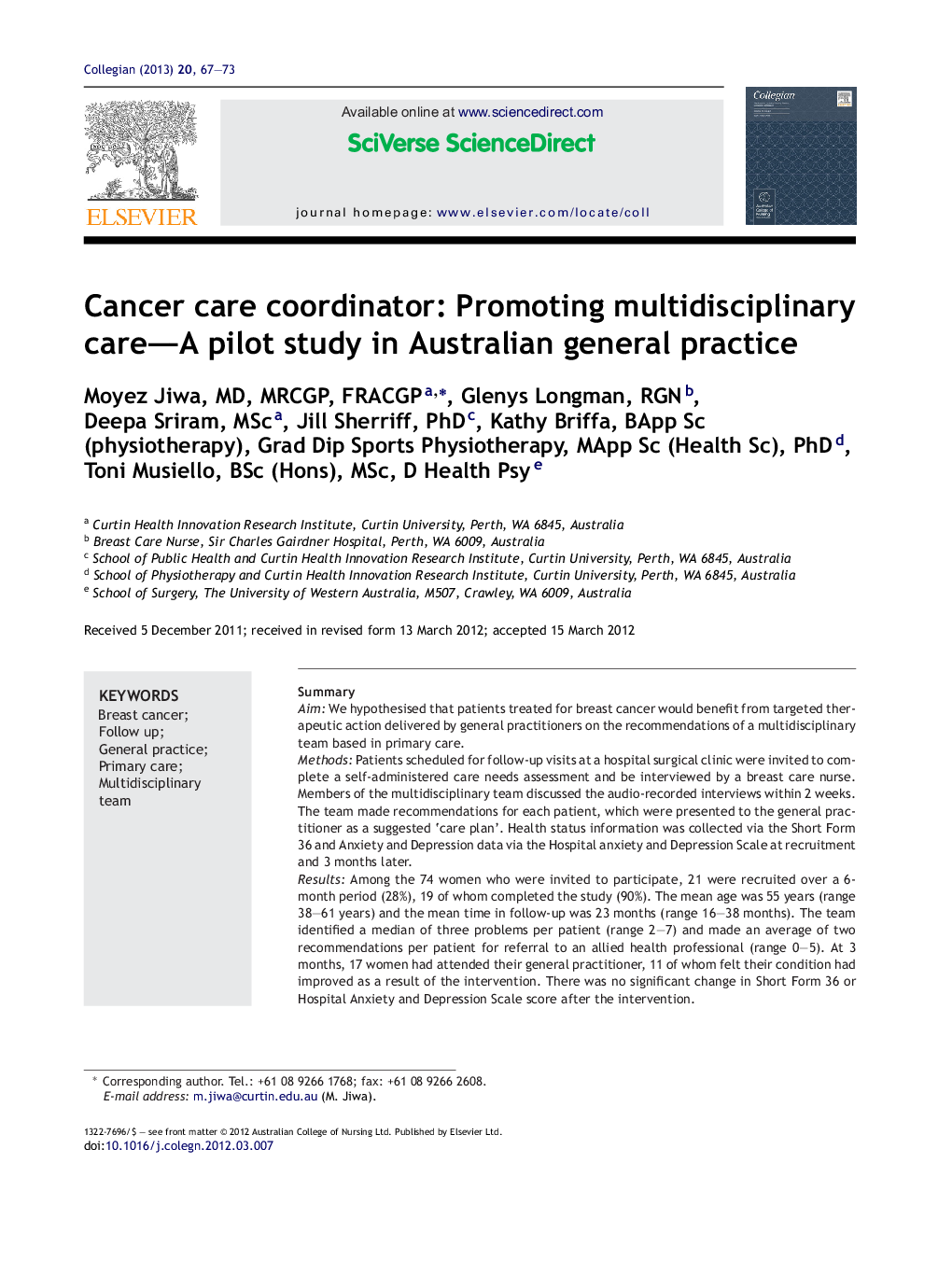| Article ID | Journal | Published Year | Pages | File Type |
|---|---|---|---|---|
| 2646597 | Collegian | 2013 | 7 Pages |
SummaryAimWe hypothesised that patients treated for breast cancer would benefit from targeted therapeutic action delivered by general practitioners on the recommendations of a multidisciplinary team based in primary care.MethodsPatients scheduled for follow-up visits at a hospital surgical clinic were invited to complete a self-administered care needs assessment and be interviewed by a breast care nurse. Members of the multidisciplinary team discussed the audio-recorded interviews within 2 weeks. The team made recommendations for each patient, which were presented to the general practitioner as a suggested ‘care plan’. Health status information was collected via the Short Form 36 and Anxiety and Depression data via the Hospital anxiety and Depression Scale at recruitment and 3 months later.ResultsAmong the 74 women who were invited to participate, 21 were recruited over a 6-month period (28%), 19 of whom completed the study (90%). The mean age was 55 years (range 38–61 years) and the mean time in follow-up was 23 months (range 16–38 months). The team identified a median of three problems per patient (range 2–7) and made an average of two recommendations per patient for referral to an allied health professional (range 0–5). At 3 months, 17 women had attended their general practitioner, 11 of whom felt their condition had improved as a result of the intervention. There was no significant change in Short Form 36 or Hospital Anxiety and Depression Scale score after the intervention.ConclusionsPrimary care-based multidisciplinary review of treated breast cancer patients is feasible and, for most, results in benefit. However, only a minority of eligible patients participated in this pilot study and the logistics of organising the reviews warrants careful consideration.
